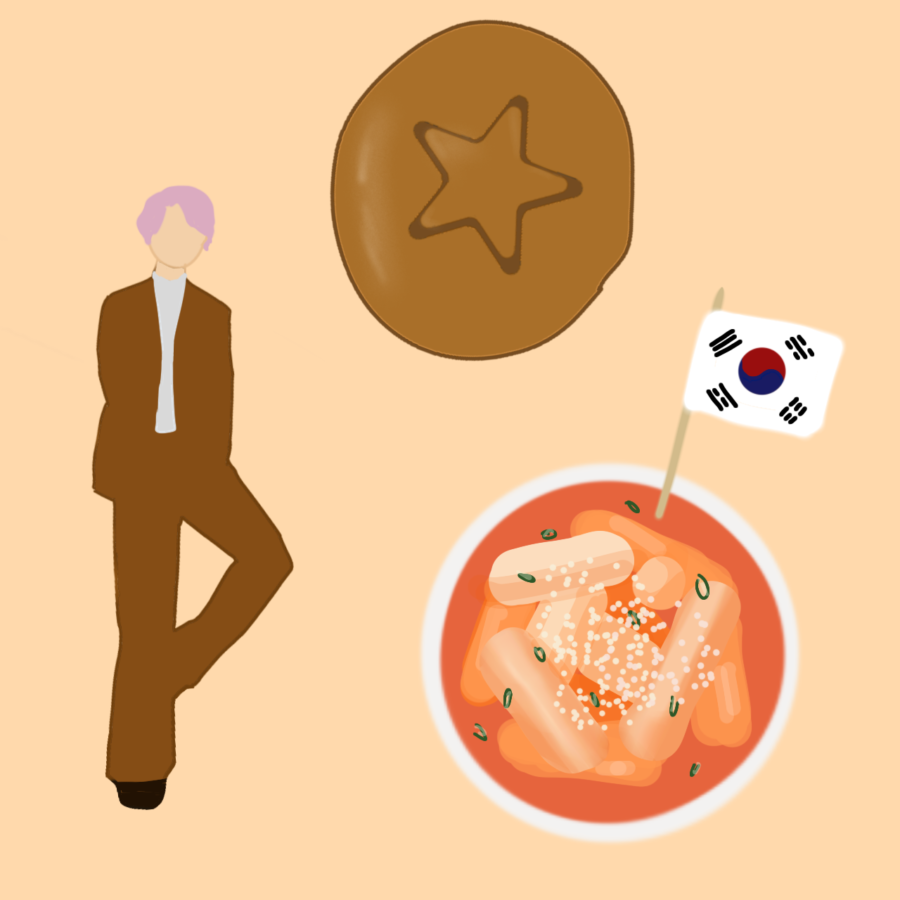How Korean culture impacts Western society
BTS, “Squid Game” and Korean food are only some of the many pieces of Korean culture that have become popular recently in the West.
December 1, 2021
Korean culture has visibly been on the rise for the past few years, gaining popularity from mostly K-pop, K-beauty and Korean movies. This booming rise has influenced countries all around the world, and there is an evident impact of Korean culture in Western society as well.
Almost the entire globe knows of the Korean boy band, BTS. They have become a worldwide sensation and also won nine BBMAs (Billboard Music Awards) as of 2021. The influence of K-pop has been sparked by BTS and spread recognition to other Korean music groups, overall boosting the recognition of Korean music culture. K-pop idols have gained extreme numbers of fans, a great number of those fans being international fans as well.
In the Americas, K-pop has made a significant appearance through the featuring of numerous K-pop groups such as BTS, Blackpink, TXT, etc. on American talk shows like The Tonight Show Starring Jimmy Fallon, The Ellen Show and so many more. K-pop has become such a popular music genre in the United States that most well-known K-pop groups hold multiple concerts, fan meetings and other events in our country, including a few other countries worldwide.
Many influencers, such as YouTubers and celebrities, have been using various Korean skincare and beauty products. The fame of K-beauty products has been spread partly by the famous K-pop idols using them in global commercials, magazines and social media. Korean face sheet masks are an example of a popular beauty product widely used these days; many individuals are trying other Korean skincare items as well. Another example of a well-known K-beauty product is the Laneige Lip Mask — there are so many influencers on YouTube and TikTok who have encouraged their followers to purchase and use the lip mask. Overall, the demand and approval of Korean beauty has skyrocketed in Western society.
“Parasite” and “Squid Game” are two Korean shows that have earned acknowledgments across the globe. Released in 2019, Parasite immediately rose to fame and made $259 million from the box office. A significant moment for South Korea was when Parasite earned six Oscars. It was a new record and an impactful event that would stay in Korean history forever.
More recently, Squid Game was released as a Korean Netflix series. It was the first Netflix series to top the daily charts of every country in which it was available. These two shows blew up the international audience’s watch list during their peaks. There was a phase when a certain dish from Parasite called Chapaguri became a popular food to try out, just like dalgona from Squid Game. Additionally, Squid Game left such a mark in the United States that there were many people across the country who dressed up as its characters for Halloween, whether it was a player of the game or one of the pink soldiers.
Thanks to all of these pieces of pop culture that have integrated themselves into our American culture, many non-Korean Americans have begun to try and enjoy Korean food. Most recently, “Squid Game” popularized dalgona, which is essentially melted sugar with a shape stamped into it. Although dalgona has been popular in Korean street shops for decades, “Squid Game” brought it to the States. Two other Korean foods, kimchi, or pickled vegetables, and bulgogi, barbequed beef, have also become popularized in America. Korean restaurants have been popping up around us, too, like Arirang Restaurant in Rockville.
What is interesting is that this cuisine has not always been deemed cool in the United States. It was only a couple of decades ago when children who brought kimchi to school were made fun of for their foreign lunches. Not only that, but movies featuring Asian actors and actresses were seldom shown. If they were, the women were exotic, mystical creatures the white male tried to chase after. The men, meanwhile, were weird, stupid people that were meant to be the joke or the punchline.
However, the recent advances in acceptance of Korean culture should be celebrated. It is important to recognize and appreciate each other’s culture, especially in a school as diverse as ours. Hopefully, this trend continues and spreads to other cultures that sometimes get thrown under the bus. Even though we live in a society where not all heritages are treated equally, there is hope for the future.



